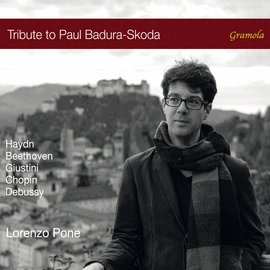Oft haben wir die Sechste Mahler sehr bedrohlich gehört, Unheil verkündend und hoch dramatisch. Bei Boulez wirkt sogar das Andante total verstört. Rattle bleibt darin lyrisch, sensuell und auch im Schmerz irgendwie verklärt. Der dritte Satz ist in seinen grotesken Ausführungen manchmal grell und frech oder auch regelrecht genüsslich.
Im Finale differenziert Rattle die Tempi und dirigiert einzelnen Passagen sehr schnell, was zu erstaunlichen Kontrasten führt.
Wie schon sein Vorgänger in München, Mariss Jansons, bleibt Rattle Mahlers Sechster kaum etwas an Dramatik schuldig, betont aber vor allem die dazu im Kontrast stehende lyrische Expressivität oder auch die gutmütige Naivität. Die Musik klingt sehr unmittelbar, sehr menschlich und gerade das lässt ihre tragischen Momente so intensiv werden.
Das Orchester des Bayerischen Rundfunks spielt auf sehr hohem Niveau und die Tonaufnahme ist räumlich und transparent.
We have often heard the Mahler Sixth in a very threatening, highly dramatic way. With Boulez, even the Andante seems completely disturbed. Rattle remains lyrical, sensual and somehow transfigured even in pain. The third movement is at times garish and cheeky in its grotesque statements, or downright pleasurable.
In the finale, Rattle differentiates the tempi and conducts individual passages very quickly, resulting in astonishing contrasts.
Like his predecessor in Munich, Mariss Jansons, Rattle owes little to Mahler’s Sixth in the way of drama, instead emphasizing the contrasting lyrical expressiveness or good-natured naivety. The music sounds very direct, very human, and that is what makes its tragic moments so intense.
The Bavarian Radio Orchestra plays at a very high level and the recording is spacious and transparent.



















